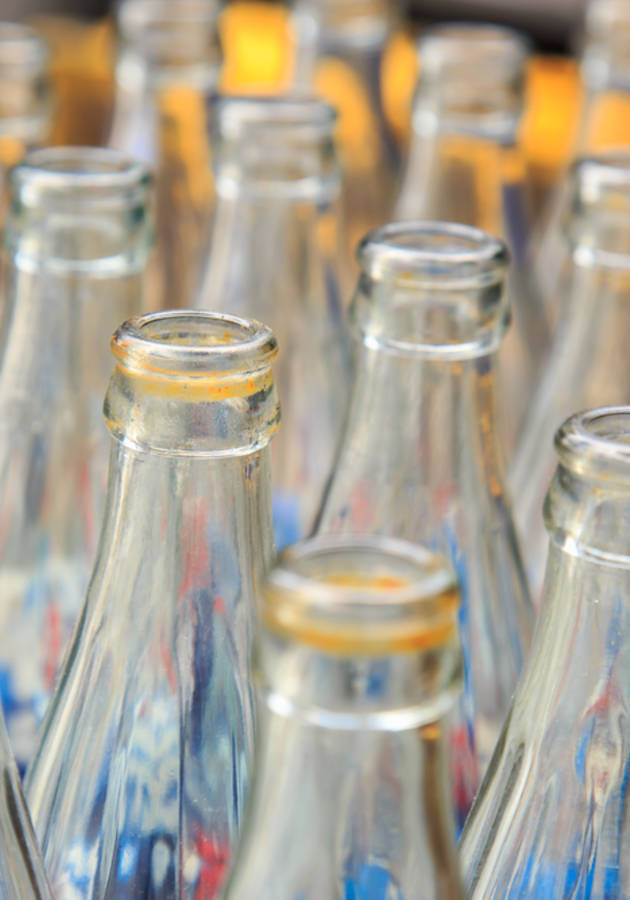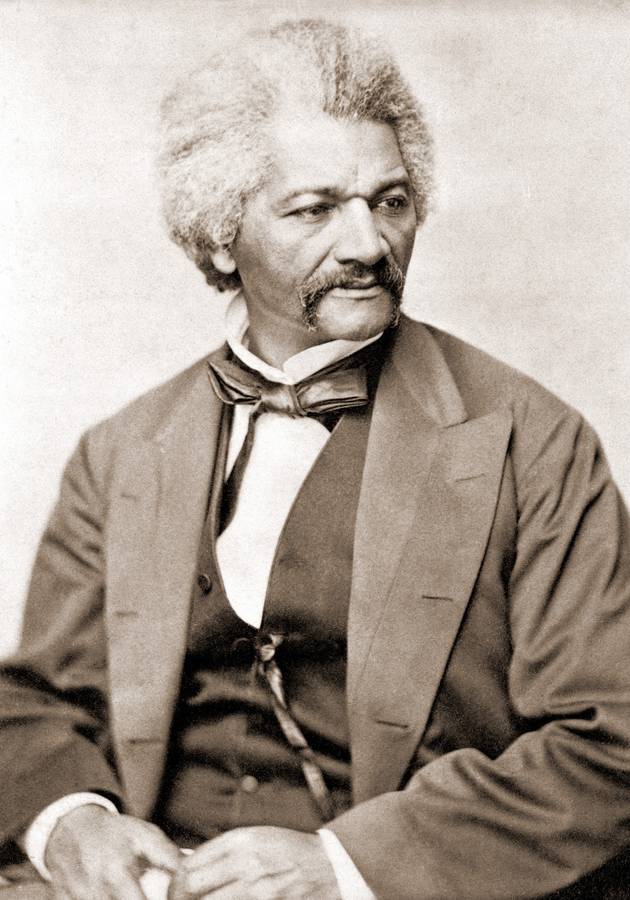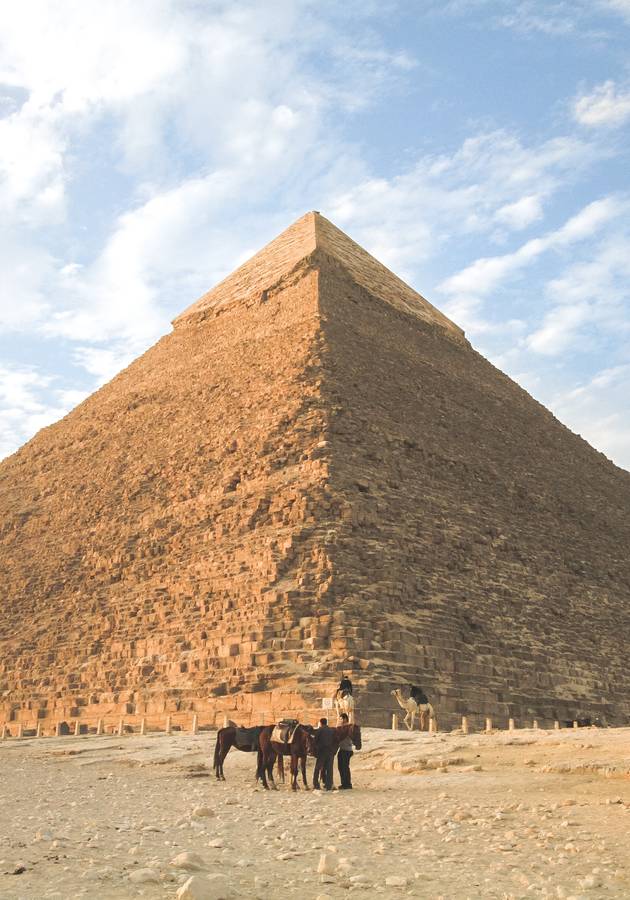Whether you’re a beer enthusiast, a wine connoisseur, a coffee addict, a tea fanatic, a spirits (liquors) fan, or a Coca-Cola lover, chances are you’ve never spent even a minute to reflect on how these drinks got to your table.
Fortunately, Oxford graduate Tom Standage spent a few years of his life exploring the topic. He previously worked as a science and technology writer for the Guardian and has been the deputy editor for The Economist.
His conclusion? You can tell the history of our world by telling the history of six of our favorite drinks – they are that important!
No wonder “A History of the World in 6 Glasses” is often dubbed “a unique book.”
Though Standage has opted to talk about beverages rather than wars and revolutions, his book still manages to cover so much of human history that teachers can even use it in the classroom. Really!
You’ll be surprised to learn how many important global events were caused by your favorite drinks, whether by their discovery, their high demand, or their absence.
Care to find out? This is your chance, you can find it out in no more than 12 minutes!
1. Beer, the drink of the civilized man
Beer was discovered accidentally as early as the Fertile Crescent ice age. For those who don’t know, the area is shaped as an arch, ranging from most of Egypt up to southeastern Turkey through the Mediterranean coast, and goes all the way to Iraq and Iran border.
Sometime around 10000 B.C., the people living there found out that gruel made from grains soaked in water turned into an intoxicating drink after only a couple of days. And they loved it so much that they decided to produce it.
Here’s where things get really interesting! This is one of the reasons why they resolved to settle, farm, and eventually store grains. You read that right! If it wasn’t for that sparkling feel in your mouth when drinking beer, people might have never discovered agriculture!
No wonder then that the poet of “The Epic of Gilgamesh,” the world’s oldest work of literature, chose beer as the drink that turns the wild man Enkidu into a civilized human being. “He drank the beer, seven jugs,” the epic says, “and became expansive and sang with joy; he was elated, and his face glowed.”
Just like this one, most references to drunkenness in Mesopotamian literature are playful and humorous. It seems that instead of seeing it as an obstacle to civilization, ancient people saw drunkenness as another way of living a civilized life to the fullest. Why shouldn’t they?
Among other things, beer might be one of the reasons they were a civilization in the first place.
2. Wine, a symbol of status and democracy
Unlike the Mesopotamians, the ancient Greeks didn’t like beer. Possibly because they knew that beer was as old as the Neanderthals and considered themselves just too new age for it. We’re not joking!
There are quite a few references in which the words “beer” and “barbarians” appear in the same sentence – and not in a good way.
More importantly, as you know, Greece is geographically blessed with the perfect climate, one that made it possible for the ancient Greeks to fall in love with another alcoholic beverage, wine. And, oh my, how much did they love it!
So much so that about half of ancient Greek literature and philosophy may have been written or orally transmitted in a state of slight intoxication.
As you can read in Plato, Euripides, and Aristophanes, among others, wine was the drink of choice for the intellectuals at the time. If you don’t believe us, just browse through any relevant anthology. God knows how many poems have been written celebrating its effects! No wonder there’s an entire Wikipedia article titled “Ancient Greece and wine.”
Now, the Greeks were much too smart not to use this “divine drink” (their words) to earn some political points.
So, wine soon became one of the main ways to disseminate their culture in countries around them. Greeks distributed jars and amphorae of wine adorned with Greek mythological motifs.
The result? Well, for starters, the myth of the Greek god of wine Dionysus is present throughout the Mediterranean coast.
A few centuries later, when the ancient Romans invaded the Balkan Peninsula, wine became a symbol of democracy. It was cheap and enjoyed by both rulers and slaves.
Well, almost: just like today, some types were deemed better than the rest, therefore being more expensive and reserved for the elite.
But, then again, that is what happens in all democracies, isn’t it: the rich are always a bit more equitable than the poor.
3. Alcoholic Spirits: invented by Arabs, drank by Europeans
In case you don’t know, the word alcohol is of Arabic origin. It is the name the medieval Arab alchemists gave to the black powder of purified antimony, which was used as a cosmetic to paint or stain the eyelids (al-kuhul, meaning “the kohl”) back then.
Even stranger: the word was used to refer only to a specific type of alcoholic drinks as it got a new meaning in the world of beverages, the distilled ones. In other words, the ones that could be produced through “alchemical” processes.
And that is because the Arab alchemists invented the process of distillation as well. Due to religious reasons, however, the products of the process (the alcoholic spirits) were rarely used for something other than scientific purposes.
The Europeans, on the other hand, loved to drink them.
And for two reasons.
First and foremost, because the European alchemists – probably in a futile attempt to use this as an excuse to their wives – came up with the pseudoscientific idea that distilled wine had healing powers and could cure everything, from paralysis to heart diseases.
Secondly, because, well, sugar: soon after the creation of rum, its perfect combination of alcohol and sugar made it the very first global drink.
Now, just like the Greeks used wine to extend their culture throughout the Mediterranean, the Europeans used spirits to expand their influence across the globe. And when that wasn’t enough, they started conquering new territories only so that they can produce some more spirits.
One could even argue that Europeans conquered the Americas driven by the desire to acquire more sugar for their rums.
No wonder sugar became the most important crop on the Caribbean islands soon after the Europeans colonized them. Soon enough, the demand for spirits was so high that Caribbean rum became a form of currency! You could even buy slaves for a few glasses of rum!
Far cheaper than brandy and much stronger than it, rum quickly established itself as the North American colonists' favorite drink. And, consequently, it played a large part in the American War of Independence!
In 1733, the Molasses Act imposed Americans to pay taxes on molasses imported from non-English colonies.
The Americans, however, ignored the Act and started smuggling French molasses. This was one of the first acts of defiance by the American colonistsagainst the mighty British empire.
But, then again, the independence of the United States – as everybody knows – is much more related to another drink. We’ll get to that one in a bit!
4. Coffee: a wake-up call for the intellectuals
First off – coffee! Once again invented by the Arabs, coffee became popular in Europe during the 17th centuryand you won’t believe why! It was because of contaminated water and wine.
You see, having boiling water as an ingredient, it was safer to drink coffee and wine than the often contaminated and germ-laden water. However, intellectuals didn’t want to be intoxicated all the time, so they preferred to drink coffee to stay awake.
Fast forward a few decades, and coffeehouses were suddenly alive with spirited intellectual debates and political vigor!
King Charles II of England, for example, wouldn’t have returned from exile if not for the coffeehouses at the time. Since they granted intellectuals unprecedented levels of freedom of speech, it was there that the supporters of the exiled king gathered and debated Oliver Cromwell and his controversial rule.
Interestingly enough, when King Charles II came in power, he attempted to shut down the coffeehouses altogether.
You can guess why: once in power, he was afraid that coffeehouses would work against him, leading to his end in much a similar fashion as Cromwell did. And he wasn’t wrong! The French Revolution started in the coffeehouses of Paris.
So, maybe, if it wasn’t for coffee, we would have never had the songs of “Les Misérables”. Also, we wouldn’t have had the privilege to read about half of the books by Voltaire and Balzac, who are said to have drunk more than 50 cups of coffee a day!
And in neighboring Germany, none other than Johann Sebastian Bach wrote The Coffee Cantata, a miniature comic opera which celebrated coffee and mocked all those that claimed that coffee was a vice and that asked for closing coffeehouses down.
5. Tea: the drink that created two empires
Chinese enjoyed tea for centuries, but, unfortunately, China wasn’t interested in trading anything with Europe for most of history, believing that European goods were much inferior.
That all changed when they started seeking more silver and gold in the 16th century, and before you could say “no honey, please,” the Dutch imported tea and the royal dynasties of Europe started drinking it. The British, especially!
Since Britain was the largest colonial force in the world, by the end of the 17th century, tea was all the rage everywhere on the planet. In addition to making the lives of the poor a bit better, it helped workers staying awake and made them more healthy.Tea also made the rich richer.
For example, one of the mainstay businesses of the East India Company was tea. And the high worldwide demand for the beverage helped the company to grow into what’s possibly the largest corporation in history.
At the height of its power, the company employed a small country and had a private army twice the size of the British military, while earning more money than the British government.
However, when the Tea Act of 1773 allowed the company to export tea to the Americas tax-free, forcing local merchants to pay the import duties and raising the prices for American drinkers, enough was enough for the American colonists. Boston Tea Party, anyone?
6. Coca-Cola: globalization in a bottle
If spirits and tea incited America to fight for its independence, Coca-Cola helped it conquer the world.
Initially intended for medicinal purposes, John Pemberton’s drink soon grew to become America’s favorite drink. However, nobody had even heard of it across the Atlantic and the Pacific before World War II. And then it happened: the first of Coca-Cola’s great marketing campaigns!
Robert Woodruff, then-CEO of Coca-Cola, gave the order to every man in a uniform to get "a bottle of Coca-Cola for 5 cents, wherever he is and whatever it costs the company." The rest, as people say, is history.
Here’s one fact you’ll probably find nowhere else: Georgy Zhukov, vanquisher of the Nazis and perhaps the most renowned Soviet general, liked Coca-Cola so much that he asked the company if they could make it colorless so that he could smuggle it for vodka.
It was the Cold War, you see, and Coca-Cola was the ultimate symbol of the free market and the power of the United States. Half a century later, it still is.
Final Notes
As its title suggests, “A History of the World in 6 Glasses” is not exactly a history of your everyday drinks, but a history of the world told through the perspective of six beverages.
Written in a charming and absorbing style and never-less-than-captivating from start to finish, the book takes the reader on an exceptional journey from an ice age to World War II without ever sounding tiresome or dull.
Too bad we didn’t have an opportunity to learn history from books such as this! It would have certainly made those school classes much more exciting, and the students much more attentive. But, then again, it’s never too late to fix this.
12min Tip
If Tom Standage’s book can teach you anything, it can certainly teach you that whatever you’re drinking at this moment, was – and is – adored as a drink by millions and millions of people worldwide.
And precisely because of this, empires rose and fell, and people’s lives got better. So, drink your beverage carefree: whatever it is, it’s created history. But be moderate.





























